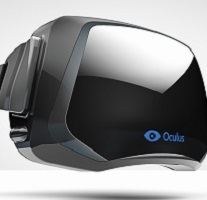Editorials
This is going to be a little bit of a departure from how we would normally approach covering specific technology. Instead of addressing the state of hardware based on what we have actually worked with, we are going to look at VR from the standpoint of a consumer looking to buy for the first time. There are a couple of reasons to do this; the first is that we do not have either an Oculus Rift, HTC Vive or any other PC based VR technology. We do have the Oculus powered Gear VR, but that is in a category all on its own which we will cover in some detail below. So with the preface out of the way, let’s get started
- Details
- By Sean Kalinich
- Hits: 6830
If you have been paying attention to the technical news lately you might have noticed more than a few articles pointing fingers back and forth between the AntiMalware company Cylance and the… well the industry. The argument (if you have not already read about it) goes something like this; the big AV/AM companies are accusing Cylance of stacking the deck in their favor when they demo their product against the competition. Cylance, for their part, claims that they provide a realistic test in comparison to what is usually done when it comes to AV/AM testing. Both sides have their points and it calls into question something that exists in all levels of the technical press and testing bodies; real world vs scripted testing.
- Details
- By Sean Kalinich
- Hits: 5605
Read more: Product Testing for Security Tools Must Change...
The Internet of Things, or IoT, Connected Devices, Smart devices whatever you want to call them have become a fixture in most homes. It has gotten to the point where you have to look hard to find a device that is not “Smart”. Manufacturers love to push the marketing term smart onto the consumer as it becomes a value add proposal; hey this can do all of this and you can control it using your phone from anywhere. What they do not disclose is exactly how insecure these devices are and how much privacy you can end up giving up just by having them in your home.
- Details
- By Sean Kalinich
- Hits: 7614
Read more: Conumers have a blind spot when it comes to IoT...
About a week ago we brought you news that Enigma Software had filed a lawsuit against BleepingComputer alleging that they were posting items that were defamatory in nature. At the time of the article we linked the page that BC (BleepingComputer) stated was at issue. This page shows, in our opinion, a fair and accurate representation of multiple malware scanners available to the consumer. BC used multiple references and posted specific comments about each of the three being discussed. Now Enigma Software has reached out to use to tell their side of the story…
- Details
- By Sean Kalinich
- Hits: 7543
Read more: Enigma Responds to Press over BleepingComputer...
The term SLAPP is one that most people might not be aware of. To put it bluntly SLAPP (Strategic Lawsuits Against Public Participation) lawsuits are ones that attempt to censor information or public discourse on a particular topic. The most common ones are from corporate entities that are trying to stop negative information about their products or other areas from getting out. The negative information is not slanderous or libelous in nature and in most cases can be backed up with documentation. Still the corporate minds try the threat of litigation to remove the information.
- Details
- By Sean Kalinich
- Hits: 6766
Read more: BleepingComputer hit with SLAPP suit from Enigma...
More Articles …
Page 5 of 89








